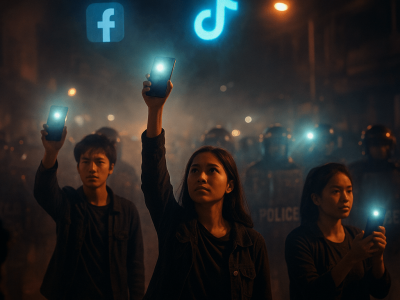Elon Musk, one of the richest and most influential men in the world, holds multiple nationalities. He was born in South Africa, acquired Canadian citizenship through his mother, and later became a naturalised American citizen. His ability to secure these passports was relatively straightforward. However, for millions of highly skilled immigrants, particularly from India, gaining American citizenship remains an almost impossible task.
A petition signed by over 280,000 Canadians has called for Musk’s Canadian citizenship to be revoked. The demand stems from his political ties to Donald Trump, who has repeatedly threatened Canada’s sovereignty. While legal experts argue that stripping Musk of his Canadian passport is unlikely, the controversy raises a crucial question: why is it so easy for powerful figures to gain and keep citizenship while ordinary immigrants are forced to struggle for decades?
A system designed to exclude
For Indian immigrants in the United States, the path to citizenship is slow, unpredictable, and often frustrating. The employment-based green card backlog has surpassed one million applicants, most of whom are from India. The wait times are staggering. Some estimates suggest that, at the current processing speed, many will never receive permanent residency in their lifetime. Research by Gambol et al. (2025) confirms that Indian professionals experience “legal dragging,” where they remain in limbo for years with no certainty of ever obtaining a green card.
Legal immigrants who have spent decades in the United States, paying taxes and contributing to the economy, still face an uncertain future. Unlike Musk, who transitioned from one nationality to another with relative ease, these individuals must navigate a system designed to make citizenship a privilege granted to only a select few. Even highly educated and high-earning Indian immigrants remain vulnerable, as their status depends entirely on the visa system, which restricts their mobility and career advancement (Bhandari, 2023).
Changing birthright citizenship laws
The challenges do not end with the green card backlog. Trump’s administration has introduced an executive order that severely restricts birthright citizenship. Previously, children born in the United States were automatically granted citizenship, regardless of their parents’ immigration status. Under the new policy, if neither parent is a US citizen or green card holder, the child is denied American citizenship.
This move directly impacts Indian families in the United States. Many are on temporary work visas such as the H-1B, which do not provide a straightforward route to permanent residency. Their children, who would have once been American citizens by birth, may now be forced to leave the country when they turn 21. The policy effectively creates a generation of young people with no clear legal status in the country where they grew up. Many Indian families now face a painful dilemma: whether to uproot their lives or risk their children’s uncertain future (Rajadhyaksha & Jain, 2024).
Musk’s privileged path to citizenship
Musk’s case presents a sharp contrast. He obtained Canadian citizenship through his mother and used it as a stepping stone to American citizenship. While legal immigrants are stuck in decades-long queues, Musk was able to bypass the system effortlessly.
His influence extends beyond citizenship. As a close ally of Trump, he now oversees a government agency that has implemented mass layoffs. His involvement in shaping policy highlights how citizenship and political power are often intertwined. The ability to influence government decisions is a privilege afforded to a select few, while thousands of skilled immigrants remain voiceless in the very country they help build.
America’s broken promise
The United States has long been seen as the land of opportunity, a place where hard work leads to success. But for many Indian professionals, this ideal no longer holds true. The restrictive immigration system has created a class of people who contribute to the country’s economy but are denied full participation in its society.
Even those who follow every legal requirement face uncertainty. Visa policies change frequently, making it difficult for immigrants to plan for their future. Families live in fear that a single policy shift could force them to leave the country they have called home for years. Many, particularly women, fear returning to India, where they might face gender-based discrimination and diminished career prospects (Sinha & D’Costa, 2024).
Who deserves citizenship?
Musk’s case raises fundamental questions about fairness in the citizenship process. His wealth and influence ensured a smooth transition through multiple nationalities. Meanwhile, law-abiding immigrants are subjected to endless bureaucratic hurdles.
If the United States truly values the contributions of immigrants, why does the system remain so broken? Why is citizenship granted so easily to those with power but denied to those who build the nation’s industries, technology, and healthcare systems? The experience of Indian women professionals in the UAE further highlights this issue, as they face a similar predicament of “comfortable transience”—living in a high-income country without any realistic path to citizenship (Bhatt, 2023).
The fight for a fairer system
The conversation around immigration must change. The current system favours the privileged while ignoring those who genuinely contribute to the country’s growth. Instead of making it harder for skilled professionals to become citizens, the process should be streamlined.
The petition against Musk is symbolic of a larger issue. It reflects frustration over the double standards in immigration policies. If citizenship is a right for those who contribute to society, then Indian professionals and their families deserve the same opportunities as the wealthy and powerful.
The United States has a choice to make. Will it continue to reserve citizenship for the elite, or will it uphold its promise as a nation of immigrants? The answer will shape the future of millions.
References
- Bhandari, R. (2023). Visa traps and the American dream: Structural exclusions in U.S. immigration for Indian tech workers. Ethnic and Racial Studies, 46(7), 1245–1267. https://doi.org/10.1080/01419870.2023.2186924
- Bhatt, N. (2023). Comfortable transience and the illusion of stability: Indian women professionals in the UAE. Social & Cultural Geography, 24(5), 648–662. https://doi.org/10.1080/14649373.2023.2077623
- Gambol, R., Nguyen, T., & Sharma, P. (2025). Legal dragging: The invisible bureaucracy trapping Indian immigrants in limbo. World Development, 168, 106183. https://doi.org/10.1016/j.worlddev.2025.106183
- Rajadhyaksha, M., & Jain, A. (2024). Birthright denied: Executive orders, legal voids, and immigration status in the United States. International Migration Review, 58(1), 34–59. https://doi.org/10.1177/01979183241234567
- Sinha, R., & D’Costa, S. (2024). Fear and belonging: Gendered narratives of return among Indian migrant families. Journal of Ethnic and Migration Studies, 50(2), 189–207. https://doi.org/10.1080/1369183X.2024.2278901





